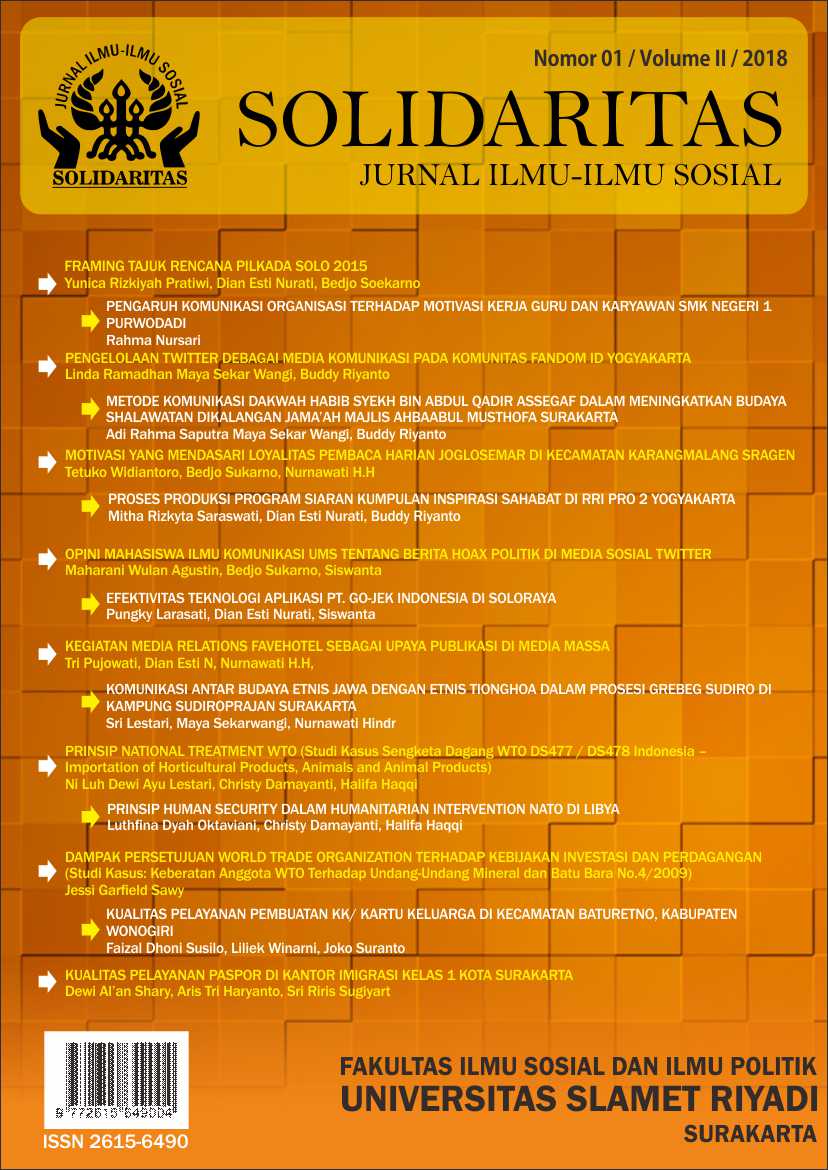PRINSIP NATIONAL TREATMENT WTO (Studi Kasus Sengketa Dagang WTO DS477 / DS478 Indonesia – Importation of Horticultural Products, Animals and Animal Products)
Abstrak
ABSTRACT
Â
This thesis is entitled WTO’s National Treatment Principle (A Case Study on Trade Dispute of WTO DS477 / DS478 Indonesia – Importation of Horticultural Products, Animals and Animal Products). World Trade Organization, as an organization and an international trade regime, has any regulation in its trade agreement that is bonding to its member countries, including Indonesia. In 2014, Indonesia was involved in trade dispute with United States of America and New Zealand because Indonesian foreign trading policy governs agricultural trading particularly Horticultural Product, Animal and Animal Product import considered as adverse and breaking WTO’s National Treatment principle. This research aimed to explain the enactment of National Treatment principle justifiable or not justifiable by WTO panel during the session. The research method used was a quantitative research; technique of collecting primary data used was interview with RI’s Trading Ministry and library research on book, journal or document relevant to the study. The theories employed were International Organization, International Regime, and Trading Liberalization. The result of research showed that WTO panel, in this case, declined to enact this principle as the infringement by Indonesia; it proved that there was a difference of interpretation on national treatment principle between United States of America and New Zealand to maintain their national interest, so did Indonesia. The conclusion was that the main problem of this dispute was different interpretation on WTO agreement as the trading instrument among WTO’s member countries in protecting their national interest.Â
Â
Keywords: WTO, Trading Regime, National Treatment.





